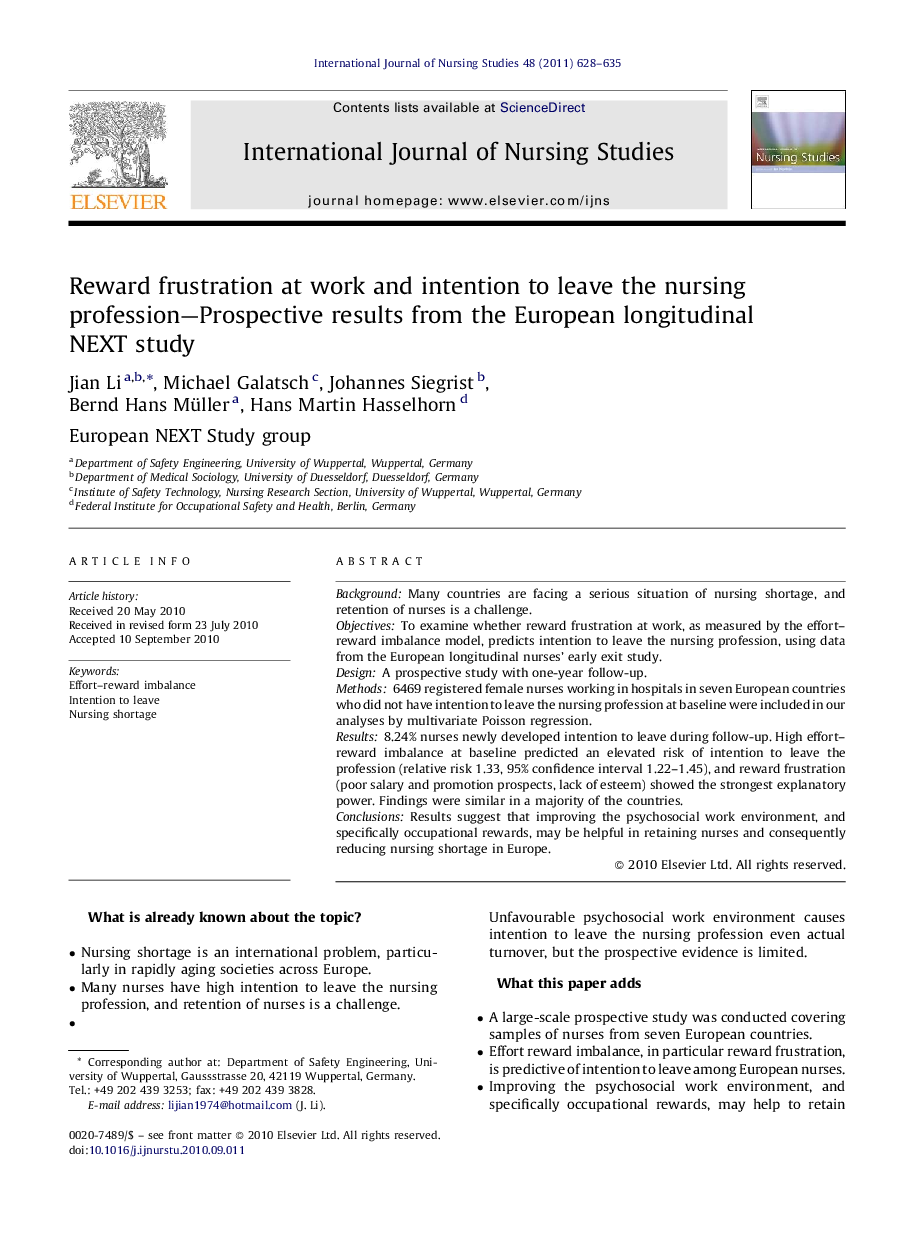| Article ID | Journal | Published Year | Pages | File Type |
|---|---|---|---|---|
| 1076693 | International Journal of Nursing Studies | 2011 | 8 Pages |
BackgroundMany countries are facing a serious situation of nursing shortage, and retention of nurses is a challenge.ObjectivesTo examine whether reward frustration at work, as measured by the effort–reward imbalance model, predicts intention to leave the nursing profession, using data from the European longitudinal nurses’ early exit study.DesignA prospective study with one-year follow-up.Methods6469 registered female nurses working in hospitals in seven European countries who did not have intention to leave the nursing profession at baseline were included in our analyses by multivariate Poisson regression.Results8.24% nurses newly developed intention to leave during follow-up. High effort–reward imbalance at baseline predicted an elevated risk of intention to leave the profession (relative risk 1.33, 95% confidence interval 1.22–1.45), and reward frustration (poor salary and promotion prospects, lack of esteem) showed the strongest explanatory power. Findings were similar in a majority of the countries.ConclusionsResults suggest that improving the psychosocial work environment, and specifically occupational rewards, may be helpful in retaining nurses and consequently reducing nursing shortage in Europe.
